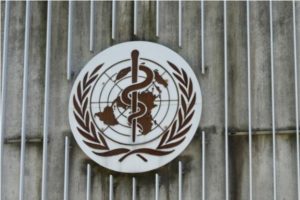Will global leaders support the EU’s pandemic treaty idea and take effective action?
Leaders of 23 countries and the World Health Organisation (WHO) recently supported an idea to create an international treaty that would help the world deal with future health emergencies like the Covid-19 pandemic now ravaging the globe (Euractiv). The idea of such a treaty, which would ensure universal and equitable access to vaccines, medicines and diagnostics for pandemics would foster an all-of-government and all-of-society approach, strengthening national, regional and global capacities and resilience to future pandemics (European Council, 30 March 2021).
To achieve this, global leaders voiced their commitment to work with Heads of State and governments globally and all stakeholders, including civil society and the private sector to fulfil their “responsibility, as leaders of nations and international institutions, to ensure that the world learns the lessons of the COVID-19 pandemic”. The 23 leaders warn that “there will be other pandemics and other major health emergencies. No single government or multilateral agency can address this threat alone. The question is not if, but when.”
But what will be the next pandemic? Antimicrobial Resistance, stated European Commissioner Stella Kyriakides (SANTE) during the Portuguese EU Presidency’s Global Health Conference. She delivered the following statement: “We need to confront the rise of Antimicrobial resistance – a major global health threat that is like a silent pandemic. We need to learn the lessons from COVID-19, and that means pushing forward the AMR agenda now before it is too late. I want to take this opportunity to call for a more comprehensive One Health Global Action Plan, that also addresses the environmental effects of AMR.” It is to be hoped that on this basis, the European Commission will draft enforceable law to immediately stop misuse and overuse of antibiotics and take action through public-private partnerships to develop and produce new classes of antibiotics before it is too late.
This is indeed the first time that the European Commission formally heeds the 15 November 2019 advice of the European Court of Auditors to step up Europe’s preparedness for an outbreak of totally- or multiple-resistant bacteria. According to the World Bank’s forecasts, without immediate measures to stop AMR, 300 million lives will be lost to AMR by 2050. By that time the global economy will have lost over 100 trillion USD. These facts were also stressed in the Parliamentary Assembly of the Council of Europe’s (PACE) recent Written Declaration, where 22 Parliamentarians called on the Secretary-General of the Council of Europe, the Committee of Ministers and the Member States, for urgent measures to prevent the next pandemic, AMR. The Declaration highlights that AMR may be the next pandemic and thus requires a coordinated effort from all countries of the world with a focus on practical and legal steps.
Based on in-depth consultations with the world’s most prominent experts on pandemics and notably AMR (www.stopAMR.eu), the experienced (Elder) Statesmen, former Belgian Prime Minister Mark Eyskens and former UN Under-Secretary-General Ad Melkert (NL), argue that preparing for the next global (AMR) health crisis requires a structure that is different from the current and delayed European Commission’s ‘HERA’ (Health Emergency Preparedness and Response Authority) initiative that will only become operational in 2023. The published Memorandum conveys that the European Union’s health policy is not yet harmonized and causes unacceptable problems and delays when coordinated and unified action boils down to a matter of life and death. In an open letter to all EU Heads of State and Government, the European Commission, the European Parliament and all EU national Parliaments, both Elder Statesmen present a HERA/European Health Security Council proposal based on the model of the European Defense Agency and the requirement of democracy- and transparency-based control through the European Parliament as points of departure.
Without such an approach, it may be impossible to fundamentally change the relationship between politics and industry. Global leaders have now voiced their commitment to ensuring universal and equitable access to safe, efficacious and affordable vaccines, medicines and diagnostics for this and future pandemics. This should particularly focus on the inability of industries to produce new classes of antibiotics without securing profitability (‘market failure’) and the ownership of patents acquired through tax-payers money need immediate and effective addressing.
While looking forward, it may also be useful to look back—to the WHO’s declaration that AMR is one of the top 10 global public health threats facing humanity and Europe’s own Scientific Steering Committee (SSC) in 1999 to issue an opinion on AMR. In conclusion, it is widely acknowledged by the global scientific community that the most likely next pandemic will be an outbreak of totally resistant bacteria or AMR. Final decision-making must truly protect the world’s citizens, its industrial sectors and its economy against any next pandemic.


 Report
Report


